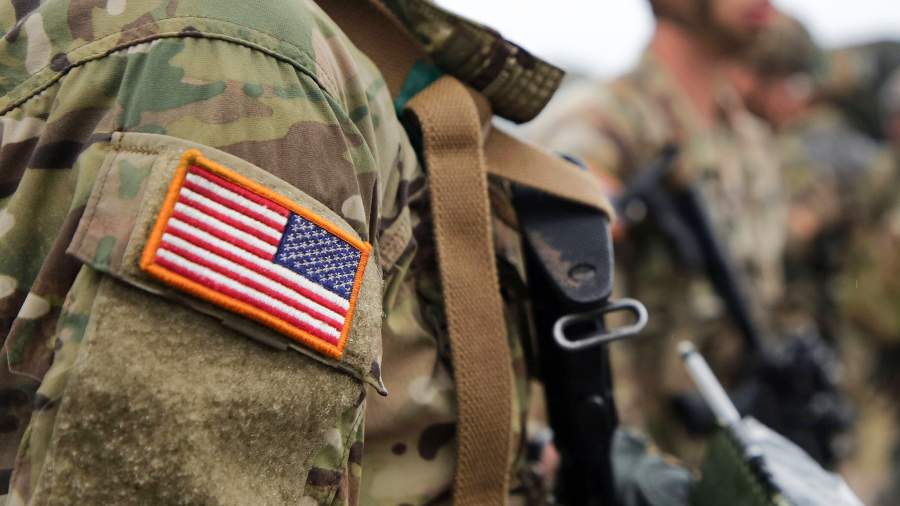Burden is running out: Iraq and Trump administration discuss coalition troop withdrawal
- Статьи
- World
- Burden is running out: Iraq and Trump administration discuss coalition troop withdrawal

The Iraqi leadership is conducting a technical-level dialog with the Trump administration on the withdrawal of the US-led international coalition forces from the republic. A source told Izvestia, noting that the contacts concern military and security aspects. Earlier, the Biden administration agreed with the Iraqi leadership on a plan to withdraw the international coalition by 2026. According to the Iraqi side, the agreement remains in force, but may be revised if the security situation deteriorates. What factors can adjust the terms of withdrawal - in the material of "Izvestiya".
Withdrawal of the US-led coalition from Iraq
The dialog between Baghdad and Washington on the withdrawal of U.S. troops from Iraq continues. As "Izvestia" found out, the administration of US President Donald Trump is negotiating with the authorities of the Republic at the technical level, discussing the details of the withdrawal of the international coalition forces. Earlier, the administration of Joe Biden agreed with Iraq on the phased withdrawal of these troops, which should be completed by the end of 2026.
- "Dialogue (with the Trump administration. - Ed.) on the withdrawal of coalition troops is underway, but these are technical discussions, and they concern military issues and security-related measures," the source told Izvestia.
With Trump's return to the White House, the plans may change. The current president has stated the need to revise policy toward the Middle East. In Baghdad, however, they insist on compliance with the previously reached agreements.
- Negotiations are underway, the agreements reached on the completion of the mission by 2026 are in force, there are no difficulties. But there are a large number of factors that could affect the presence of international coalition forces in Iraq. Of course, the decision to end the mission cannot be canceled, but there is a possibility that there may be delays with the withdrawal," Iraqi military specialist Safaa al-Asam explained to Izvestia.
In September 2024, the State Department reported that the international coalition led by the United States decided to complete the military mission in Iraq. The schedule and all stages have already been agreed upon. The withdrawal of troops should take place no later than September 2026. At the same time, a transition to a bilateral security partnership between the U.S. and Iraq is envisioned.
Iraqi Prime Minister for National Security Qassem Al-Araji said in an interview with the Al-Hadath TV channel that the security situation may make adjustments to the plan, but if the situation is stable and ISIS (IS, "Islamic State", an organization banned in Russia) does not pose a threat, the agreement on the withdrawal of troops by 2026 will be implemented.
The IS threat in Iraq
Although IS no longer poses as strong a threat as it did in the mid-2010s, terrorist activity remains a long-term challenge to Iraq's stability. About 60,000 IS members are now in Syria in camps and prisons under the control of Kurdish militias. The children who live in these camps are second and third generation. All this is a time bomb, Safaa al-Asam noted, adding that Iraq realizes that if the US stops supporting Kurdish formations, prisons in these regions could be opened. According to him, the US decision to suspend aid to foreign humanitarian organizations will also affect the al-Hol camp, where families of IS fighters are held.
El-Hol was established after the defeat in 2019 of the last IS stronghold in El-Baghuz on the eastern bank of the Euphrates River, it houses more than 50,000 relatives of former fighters. Now most of all Iraqis live in al-Hol, they number about 20 thousand, in second place are Syrians. There are also more than 6 thousand people from 57 countries, including Russia. In addition to captured ISIS militants and their families, the camp also houses refugees.
With the arrival of the new administration in the White House, the uncertainty has only increased. Donald Trump had previously attempted to withdraw troops, but ultimately limited himself to reducing the contingent. For Iraq, the withdrawal of US troops is not only a question of sovereignty, but also a difficult balance between domestic politics and external influence. The country is home to many Iranian-backed Shiite militias that demand a U.S. withdrawal. At the same time, part of the Iraqi leadership fears that a premature American withdrawal could create threats.
Technical talks between the sides may primarily concern security guarantees. Baghdad needs clear timelines and mechanisms for transferring responsibility for strategic facilities and military infrastructure.
Another important aspect is the regional situation. Pro-Iranian formations operating on Iraqi territory also exert considerable pressure on Baghdad, demanding the withdrawal of foreign troops. This creates additional difficulties for negotiations. Washington fears that after the withdrawal of U.S. forces, Iraq will become even more dependent on Iran.
The withdrawal of coalition troops could seriously weaken the Iraqi Armed Forces in important areas such as intelligence, air defense, air support, logistics and coordination. This, on the other hand, provides an opportunity to strengthen Russian influence in the country through increased military cooperation.
Iraq, representing the arena of struggle between the US and Iran, is trying to balance its position by diversifying its foreign policy ties. In practice, strengthening military cooperation with Russia will help Iraq improve its defense capabilities and gain access to advanced weaponry. For example, Iraq has long been interested in Russia's S-400 air defense systems. The government's intention to purchase the air defense system from Moscow was reported back in 2019 by the republic's ambassador to the Russian Federation, Haidar Mansour Hadi. Russian Ambassador to Iraq Elbrus Kutrashev earlier told Izvestia that the US position was an obstacle to the purchase of such systems.
Переведено сервисом «Яндекс Переводчик»
